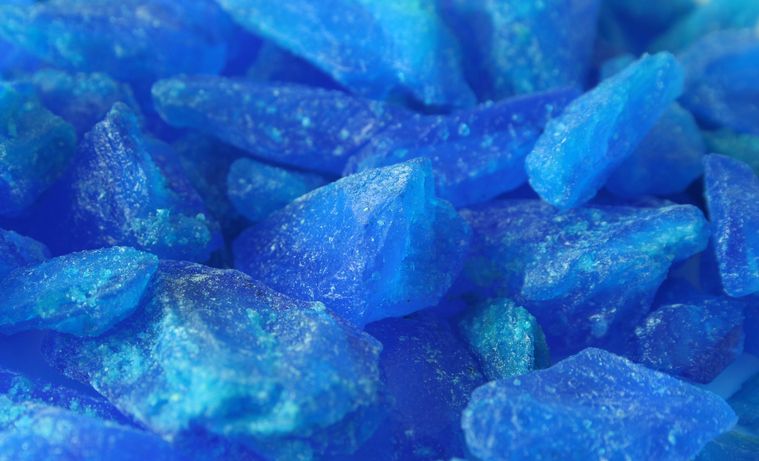
In the US and most of the New World, spraying copper sulfate is not a required vineyard treatment. In Europe it is, and it’s used during the vegetative growth cycle in rainy periods to combat Downy Mildew, a fungus that, like the global problem of Powdery Mildew, feasts on the plant’s chlorophyll. Downy Mildew is transported by water, so if there is no water, there is no Downy Mildew, and it is easy to know when a treatment is needed. Powdery Mildew is much sneakier and requires constant sulfur spraying in the vineyards long before its symptoms even appear.
I asked our friend and French PhD Enologist, Manu Gagnepain what copper does to the grapes. He said, “we noticed that in years when we’ve used more copper treatments the grape skins become more dense and hard, giving them more protection against botrytis. If the treatment is made late, it can make a wine’s tannins more dry while leaving a metallic sensation in the mouth.” He mentioned a dirty little secret that a lot of big volume producers will often make a last unnecessary copper treatment before harvesting in an effort to give their low quality grapes the impression of more complexity with the more noticeable tannins and metallic sensation. Yuck.
Manu mentioned three common ways residual copper appears in wine: 1) If you spray less than 3 weeks before harvest and it’s not raining, you will have residual copper in the wine. He mentioned that this can be easily identified by tasting berries that have too much of a metallic sensation; 2) Iron tanks with some kind of copper alloy in the door parts; 3) Copper sulfate additions to the wine to try to resolve stinky reductive elements. (Be sure to check out the comments for the rest of the story!) So, do all wines have copper residues? No, not all. Manu explained that if residual copper exists in wines before bottling, it can be removed with bentonite (a natural clay product) as well as some more recently developed, less invasive vegan treatments using pea protein and mushroom chitosan extracts. Pretty cool.
Copper is a mean little guy. If not used sparingly, it can really mess things up. According to Manu, copper is the second biggest deterrent to root development, next to herbicides, the biggest culprit of stunted root systems. The parts of the root systems which absorb most of the nutrients are fragile and thus the most impacted. Without healthy roots, plants don’t get the nourishment they need to produce complex grapes. Thankfully, copper alternatives for mildew protection are being explored, things like essential oils from algae, sage, valerian, yarrow and more. Sadly, the success rate in particularly rainy vintages is still low.
There’s a lot more about copper that we know, and most likely a lot more that we don’t know! And, we can’t believe you just read all of that!!
Thanks @thesprucemakes for taking this very cool photo!

